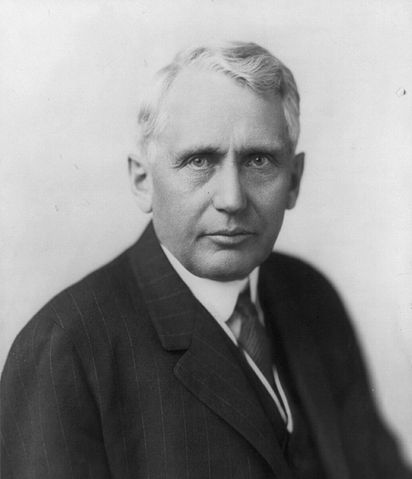Why was Frank Billings Kellogg Awarded the Nobel Prize for Peace in 1929?
Architect of International Peace and Disarmament
Frank Billings Kellogg: Architect of Peace Recognized with the Nobel Prize
The Nobel Prize for Peace has long been a symbol of recognition for individuals who have made significant contributions to the promotion of peace and the prevention of conflicts on a global scale. Among the distinguished laureates is Frank Billings Kellogg, whose remarkable achievements in the realm of international diplomacy and disarmament led to his deserving recognition with the Nobel Prize for Peace in 1929.

Frank Billings Kellogg’s Early Life and Career
Born on December 22, 1856, in Potsdam, New York, Frank Billings Kellogg was an American lawyer, diplomat, and statesman whose commitment to fostering peace would leave an enduring legacy. Kellogg’s early legal career showcased his keen intellect and dedication to justice, setting the stage for his future diplomatic endeavors.
Kellogg’s Role in the Kellogg-Briand Pact
One of the primary reasons for Frank Billings Kellogg’s Nobel Peace Prize was his instrumental role in the creation of the Kellogg-Briand Pact, also known as the Pact of Paris. This groundbreaking treaty, signed on August 27, 1928, sought to outlaw war as a means of resolving international disputes. Alongside his French counterpart, Aristide Briand, Kellogg played a pivotal role in drafting and negotiating the pact, which renounced war as an instrument of national policy.
The Kellogg-Briand Pact marked a significant step forward in international relations, symbolizing a collective commitment to peaceful conflict resolution. Its signing by numerous nations was a testament to Kellogg’s diplomatic prowess and his dedication to crafting a world where disputes were settled through dialogue and diplomacy rather than military force.
Kellogg’s Impact on Disarmament Efforts
Another notable aspect of Frank Billings Kellogg’s contribution to peace was his advocacy for disarmament. In a world still reeling from the aftermath of World War I, Kellogg recognized the importance of reducing arms and military tensions to prevent future conflicts. His efforts to promote disarmament mirrored his belief in the power of diplomacy and cooperation to maintain international stability.
Through his involvement in various diplomatic circles and international conferences, Kellogg championed the cause of arms reduction. His commitment to disarmament aligned seamlessly with the principles of the Nobel Peace Prize, which aims to recognize individuals who actively work to prevent war and promote peaceful resolutions.
Legacy and Continuing Relevance
Frank Billings Kellogg’s legacy continues to resonate in the realm of international diplomacy and peacekeeping. The Kellogg-Briand Pact, while not entirely successful in preventing all conflicts, remains a testament to the enduring pursuit of global harmony and conflict prevention. Kellogg’s visionary approach to diplomacy and his dedication to forging a world free from the horrors of war have left an indelible mark on the course of history.
The recognition of Frank Billings Kellogg with the Nobel Prize for Peace in 1929 was a well-deserved acknowledgment of his pivotal role in shaping international relations during a crucial period. His contributions to the Kellogg-Briand Pact and his tireless advocacy for disarmament underscored his commitment to a world where disputes are resolved through dialogue, diplomacy, and the renunciation of war. Kellogg’s legacy serves as an enduring reminder that the pursuit of peace requires the dedication and collaborative efforts of individuals who believe in the transformative power of international cooperation.




